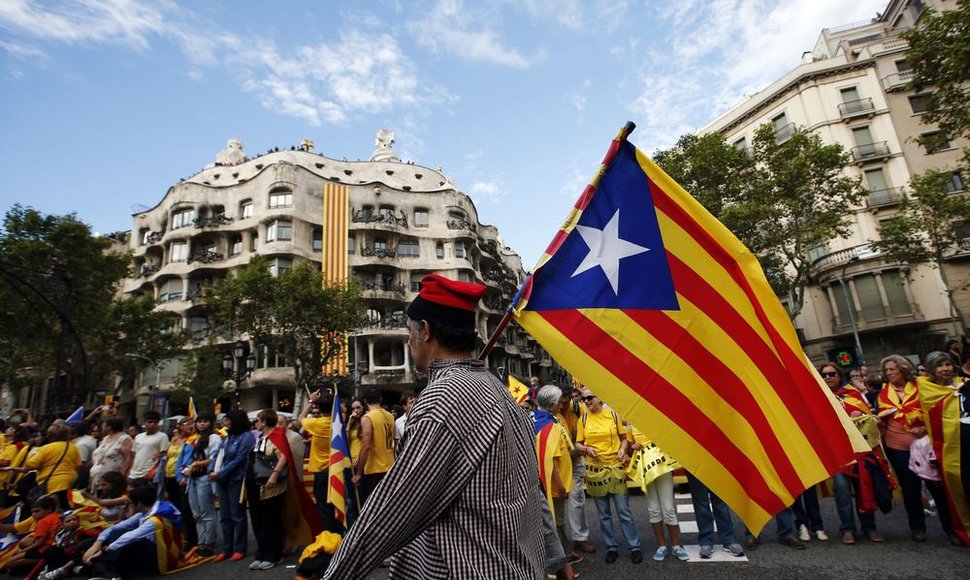Madrid's steps followed Butkevičius' interview to the local media where he said that the example of the Baltic Way – a mass campaign where the Baltic nations protested against the Soviet rule – inspired the people of Catalonia, who formed a human chain to demand independence from Spain last week.
"I am very happy to see the Lithuanian example inspire people elsewhere," the prime minister said in an interview, which is available here.
"I believe every country should follow its principles or certain laws and I think it is a path that should be chosen by a country. I believe any peaceful way of showing solidarity among people and express their lawful opinion is welcome," Butkevičius said.
Rasa Jakilaitienė, spokeswoman for the foreign minister, confirmed the fact but refused to elaborate, saying that no comments are made on working meetings.
The Spanish government also criticized statements by Latvia's Prime Minister Valdis Dombrovskis – the Latvian ambassador was also summoned to the ministry.
Before the news broke, the Lithuanian Foreign Ministry issued a press release on Sunday evening, saying that the Spanish media had provided a biased and misleading interpretation of the Lithuanian stance on Catalonia.
"We stress that it is not correct to compare the Soviet occupation of the Baltic States with the situation in Spain. Spain is a democratic country, a member state of the European Union and Lithuania’s close ally in the EU and NATO," reads the statement.
"All internal and domestic problems and questions should be solved according to Spain's law and Constitution. Lithuania highly appreciates its bilateral and multilateral cooperation with Spain and we hope that these tendentious publications will not affect the mutual understanding between our two peoples," the ministry said.
On September 11, residents of Catalonia, a region in Spain, formed a huge human chain stretching 400km by the Mediterranean Sea, demanding independence from Spain. The campaign involved more than 1 million people. Organizers say it was inspired by the 1989 Baltic Way, when millions of people of Lithuania, Latvia, and Estonia held hands to commemorate an anniversary of the Soviet-Nazi pact that led to their occupation.
The Conservative government of Mariano Rajoy has refused to support the split and threatens to block the planned referendum on self-governance, which Catalonian President Arturo Mas pledged to hold in 2014.
Some 49 percent of Catalonian residents support the region's independence, while 36 percent are against, shows a poll published in El Pais daily on Sunday.












